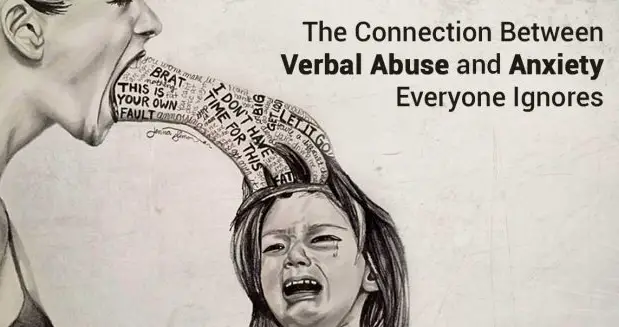Verbal violence is little known among people, so often those who are victims of verbal violence do not believe or are aware that they are victims of it. Verbal abuse usually begins with shouting, continuing with insults and diminishing the importance of man as a being in this world. People who are victims of verbal abuse are not even aware of it, and some of them who are aware choose to deny that phenomenon.
The perpetrator of verbal abuse is known as an assailant, although it is not a physical assault, but verbal abuse is also a form of violence, so the perpetrator is an assailant, and the perpetrator is a victim. . The attacker often uses various tactics to interrupt the other side and ignore. In this way the victim gets a sense of less importance.
Why do some victims not realize that they are in fact victims of verbal abuse?
This depends a lot on the way and the environment in which the victims grew up. If the victim lived in a conflict environment and often witnessed shouting and insults from her parents, then they would accept it as a normal form of communication. Accordingly, they can not recognize anything wrong with what they are experiencing.
The consequences of verbal violence are felt by the victims after a certain period. After a certain period, the victims get a feeling of less importance, they feel insufficiently smart, insufficiently good, insufficiently worthy of their general existence in this world. Victims of verbal violence simply feel worthless in every way. It is by the attacker that in order to achieve the desired effect, the abuser does not behave badly constantly, but changes his behavior to gentle and careful behavior, in order to confuse his partner. Because of this, the other side often justifies anger as a momentary phase.
Consequences of verbal abuse
This type of violence leaves a lifelong mark on the lives of victims. Over the years, victims of verbal violence become insecure, anxious, and depressed. According to some studies, victims of verbal violence who were victims in their home during childhood or were victims of verbal abuse by their peers are at greater risk of depression and anxiety in adulthood.
As with all other forms of abuse, this form of violence has lasting consequences in the lives of victims. According to psychologists, this in some cases leads to post-traumatic stress disorder. Victims of verbal abuse who have been exposed to this type of long-term violence often develop a false self-image and self-esteem, and feel incompetent, insecure, and unfulfilled. Victims of verbal violence face a lack of trust that affects the victim’s emotional relationships, as well as work and social life in general.
Forms of verbal abuse
As mentioned above, there are various indications of verbal abuse, such as abusive names, inappropriate comments, ridicule, public humiliation, criticism, shouting and swearing, and threats.
It is important to be familiar with this topic, to help yourself and your loved ones who may have had a traumatic family experience. It is best to avoid such a scenario by taking care of yourself and getting out of the toxic relationship in time.
How to recognize verbal abuse in your life?
If you notice that someone close to you is constantly doing some of these things, you can conclude that it is verbal abuse.
- Gives you offensive names
If a friend, despite your resentment, keeps calling you derogatory nicknames or names, then this is a form of verbal abuse. Even if the names are said in a gentle tone, it is still not something you have to accept from the other person.
- Make you ashamed
What does it mean to be ashamed of someone else’s words? It means critical, sarcastic or derogatory words addressed to you. These comments may relate to your way of dressing, the way you talk, or the words intended for your intelligence. Basically, shame refers to everything that makes you feel inferior or ashamed of who you are.
- He makes bad jokes about you.
This is typical of verbal insults. A joke that you will smile at and told without ulterior motives is fine, but if you are offended by every joke then it is not a naive and ordinary joke. People who want to verbally abuse you find topics in an area where they know you feel vulnerable and weak.

